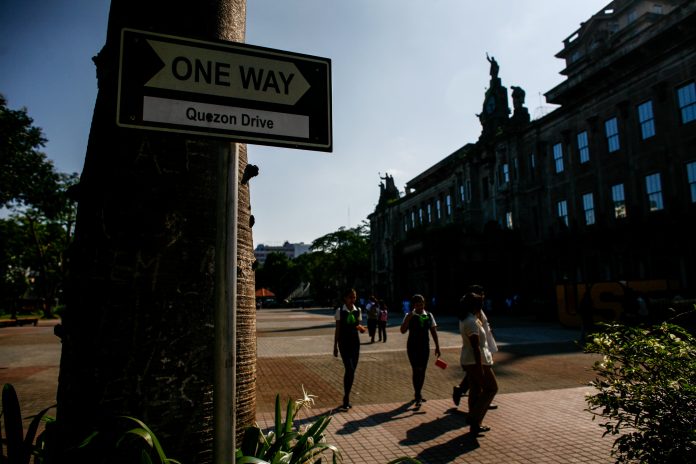IN late May, news came out that Angelicum School, a Catholic educational institution in Jaro municipality, Iloilo province, run by the Order of Preachers, planned to close down by July 31 due to financial difficulties brought about by the COVID-19 pandemic.
According to the news report, the school director, Dominican priest Maximo Gatela, wrote a letter advising students to choose a home study program or else transfer to another school.
A few days later, however, the board of trustees of the school issued a statement to recall the notice of closure.
“The Board of Trustees, as well as the Provincial Council of the Dominican Province of the Philippines, did not approve any cessation of operation,” read the statement signed by the head of the Filipino Dominicans, Father Napoleon Sipalay, O.P.
The statement further said that Father Gatela had also resigned as director of the school, which was founded in 1978 by Father Rogelio Alarcon, O.P., first prior provincial of the Filipino Dominicans.
Had the closure of the school taken place, this would have been the first case of a Catholic school in the country to go belly up as a result of the COVID-19 pandemic.
But fortunately, its board of trustees decided that even as the school’s finances are hemorrhaging, it should continue to provide quality education to Filipino youths.
After all, the Catholic Church in the Philippines has already weathered wars, rebellion, and natural disasters of all kinds, including typhoons, earthquakes, and volcanic eruptions over five centuries—and survived.
And why can’t its academic institutions helping educate the youth be given all-out financial and other support now that they face serious funding difficulties?
The Catholic schools seek to impart basic knowledge and skills in various disciplines and areas of interest and instill Christian core beliefs and values on young and therefore impressionable minds so they can become productive members of society later on.
Angelicum’s case is not an isolated one as other Catholic schools must really be hurting financially because they have no choice but to temporarily stop operations due to the coronavirus lockdown if no funding comes soon enough.
LiCAS.News had earlier reported that a member of the board of trustees of the Catholic Educational Association of the Philippines, has admitted many of their member-schools are facing hard times because of the pandemic.
Their struggle for survival is partly due to the fact that they have been unable to collect tuition and other fees from students during the lockdown, and relying on savings to pay the salaries of teachers and staff in the past two-and-a-half months.
Their member-schools have nevertheless reached a consensus that, as much as possible, no one should lose their job.
Catholic seminaries in the country are facing the same financial challenges due to the pandemic as well.
Other private schools have already sought assistance from the government, particularly on behalf of school personnel and students.

According to the Coordinating Council of Private Educational Associations, the private education sector has been “seriously affected” by the lockdown, and would welcome “government support in any form” just so they can continue operations.
They have therefore asked for the inclusion in the government’s social amelioration program of the educational needs of students and financial assistance to teachers and school personnel.
The group had earlier called for the “immediate and urgent release of funds” to the Department of Education for the disbursement of government subsidies for students in private basic education.
At present, 263,000 teachers are employed in private basic education schools while 77,000 work as faculty in private colleges and universities nationwide.
At this point, it is worth noting that even in the United States, the Association of Catholic Colleges and Universities has also reported that because of the pandemic, their members are now strapped for cash and trying to stay alive. Many Catholic colleges “went right into the red” when they decided to close their campuses, the group said.
On the other hand, most schools refunded their students for room and board, costing them millions of dollars each. Other schools had to pay for the technology to move everything online all at once, which also cost them a lot of money.
Be that as it may, our own Catholic schools and universities face awesome challenges ahead. They would have to undertake serious fundraising efforts now even as they try to find the right mix of learning opportunities for students amid the pandemic, if they want to continue their mission to serve the education needs of young Filipinos in the years ahead.
Ernesto M. Hilario writes on political and social justice issues for various publications in the Philippines. The views and opinions expressed in this article are those of the author and do not necessarily reflect the official editorial position of LiCAS.news.









